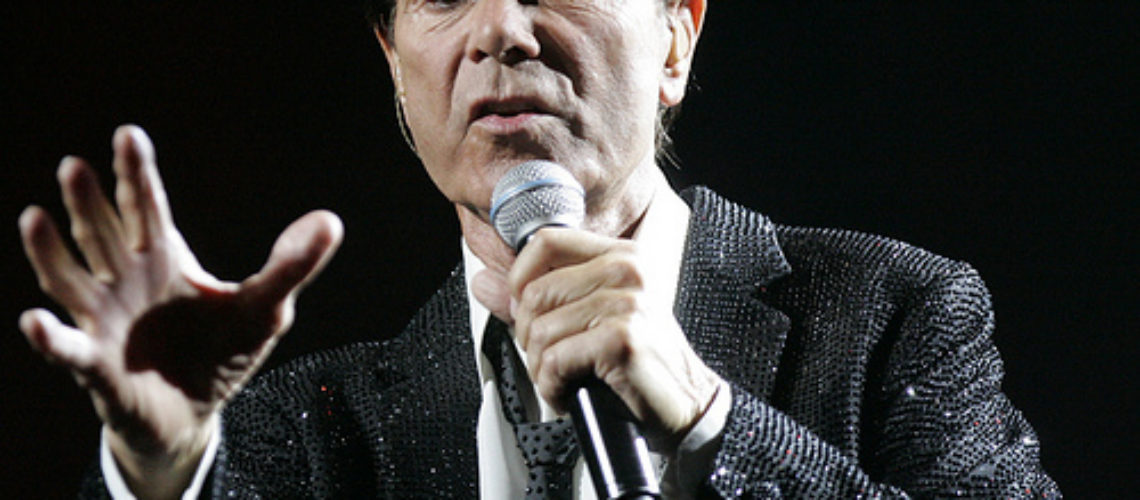The BBC’s sensationalist coverage of the South Yorkshire police ‘investigation’ of Sir Cliff Richard over alleged sexual impropriety stank to high heaven from the beginning. Now that the 75-year-old singer has been totally exonerated, it stinks even more.
The Richard saga began in August 2014, when – according to an official report by retired Chief Constable Andy Trotter, one of the country’s leading police experts on press relations – the Corporation pressured the South Yorkshire force to make a preliminary search of Sir Cliff’s home into a major primetime television news event.
It should be noted here that although Trotter was as thorough as he could be in reaching his findings, he was handicapped heavily by the conduct of the BBC. Though it had milked to maximum extent the high drama footage of the ‘raid,’ Corporation news chiefs refused point blank to give evidence to his inquiry.
When the report was published in February, this stonewalling was compounded. The only trace on the BBC website of the report is in the South Yorkshire section; in their eyes, therefore it had only local significance.
In his report, Trotter said the BBC had, in effect, misled the police about the amount of information about the investigation it had, and had thus duped the press office into putting pressure on officers to allow them to witness – and, in effect, be part of – the raid.
The way the two organisations acted together was, according to Trotter, totally unwarranted, and outside proper police procedures. Leading leftist human rights barrister Geoffrey Robertson – normally a natural ally of the Corporation – said the nature of the BBC’s coverage amounted to a ‘conspiracy to injure’ the singer.
In the aftermath of the raid, the Corporation’s then deputy director of news Fran Unsworth justified the massive intrusion into the singer’s life by blaming the pressures of the news agenda. In other words, an insolent ‘Not us, guv, we were only doing our job’. BBC home affairs correspondent Danny Shaw compounded this by alleging that if anyone was to blame, it was South Yorkshire police in ‘a deliberate attempt to engineer maximum coverage’.
Part of the Corporation’s stonewall response – and refusal to tesify to Trotter – was that it claimed that a hastily-convened Commons home affairs committee hearing held a few weeks after the raid by the pro-BBC chairman, Keith Vaz, had exonerated its conduct.
It did no such thing, because Vaz, in his haste to finger the police and let the BBC off the hook, reached his conclusions long before the full facts were known. It was Trotter, reporting the following February after a thorough forensic investigation, who – despite the BBC’s refusal to cooperate with him – brought to light the correct picture of collusion, incompetence and misinformation.
After this this sorry, obstructive saga, how did the BBC report this week’s exoneration of Sir Cliff?
To be fair, they have published prominently on the BBC website the singer’s statement about the investigation which included his claim that he had been ‘hung out like live bait’ by the police investigation and his anguish over that his ordeal had last almost two years.
That said, the Corporation’s official reaction to its own role in the events was this:
“We applied normal editorial judgements to a story that was covered widely by all media and have continued to report the investigation as it developed including the CPS’s decision today – which is running prominently across our news output.”
Normal editorial judgments? If this is so, then the BBC inhabits a different moral universe. The reality is that, as the Trotter report found, they deliberately chose from the outset to exaggerate the significance of the raid, and used their immense clout to manipulate and hoodwink an incompetent South Yorkshire police in their efforts.
What it boils down to is that in the pursuit of this story, the BBC did not give a damn for Sir Cliff or the laws and journalistic conventions that are designed to protect the innocent from being unfairly presumed guilty.
Why? Probably because, unlike the BBC’s rock-star heroes such as David Bowie – whose recent death was treated as a world tragedy in the Corporation’s coverage – Richard does not flaunt his sexuality, has never espoused drug use as an essential part of the creative process, and now appeals principally to a middle-of-the road, aging, white, middle England audience. In other words, everything that the BBC abhors. That’s what made him fair game for this in-the-gutter journalism.
A principal issue here is that it illustrates yet again the BBC is impervious to criticism of its journalism and is a law only unto itself. Its guaranteed, lavish funding by a regressive tax allows it to be. In similar vein, as the EU referendum poll fast approaches, it continues to churn out biased pro-‘remain’ coverage for exactly the same reasons. The Corporation is a menace to both the democratic process and moral decency.


